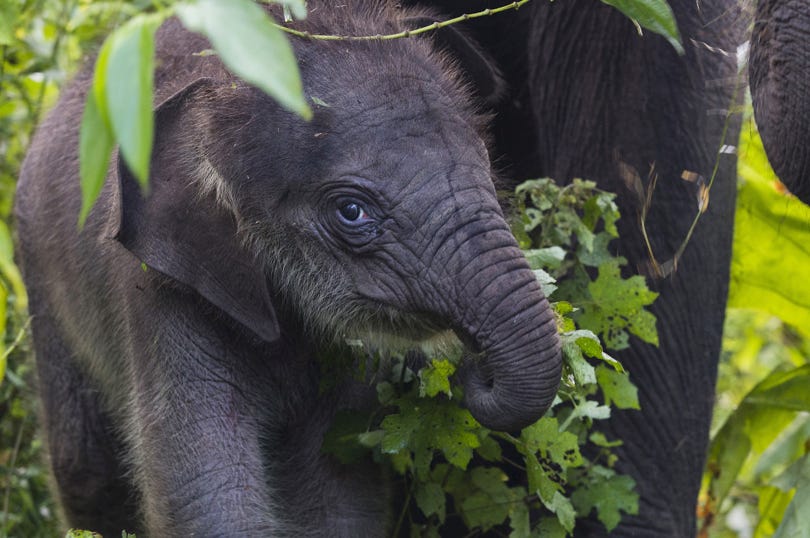We’ve spent over 10 years trying to protect the last place on Earth where Sumatran orangutans, tigers, elephants, and rhinos coexist in the wild. Today, the landscape sits at a crossroads—will it become a global model for rainforest conservation, or will it disappear piece by piece?
Back in 2012, our allies in Indonesia came to us with an urgent plea: Palm oil developers were deliberately setting fires to clear land in a lush, orangutan-filled rainforest in Sumatra called the Leuser Ecosystem.
We investigated the case, and found that dozens of producers, multinational corporations, and bank financiers were connected to this destruction, including Nestlé, PepsiCo, Unilever, and Mars.
We mobilized the support of thousands of consumers both online and through direct protests at corporate headquarters. High-profile media coverage brought the Leuser into public consciousness, and hundreds of major brands and banks began to adopt No Deforestation, No Peatlands, and No Exploitation (NDPE) policies.
Deforestation rates began to decline as public pressure and behind-the-scenes work among civil society groups, government officials, and the private sector sought to put a halt to this ecological carnage. Yet, to this day, deforestation persists.

Recently, we used ultra-high resolution satellite imagery to expose palm oil-related deforestation in a highly sensitive part of the Leuser Ecosystem called the Rawa Singkil Wildlife Reserve, also known as the “orangutan capital of the world.” Deforestation in the Reserve has increased at a rapid rate since 2020, much of it at the hands of local elites running small, corporate-style plantations. This illegally produced palm oil is making it into the supply chains of major corporations.
These small plantations are delivering the Leuser a “death by a thousand cuts,” and there’s a real chance that the people running them could avoid accountability due to loopholes in one of the most important anti-deforestation regulations in many years, the European Union Deforestation Regulations (EUDR), as well as persistent weakness in the implementation of corporate palm oil sourcing policies.
Consumer pressure remains critical to ensuring that loopholes in official laws and private sector policies are slammed shut. Additionally, we must strengthen the land rights of Indigenous peoples who have stewarded rainforests for millennia, and enforce environmental laws to protect areas under attack from illegal palm oil development.
For all of our successes over the last 12 years, the Leuser Ecosystem remains at a crossroads. It will only be through continued vigilance, private and public policy reform, and credible corporate accountability systems that we can ensure it remains intact for future generations.
